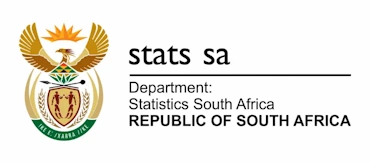Category Archives: Households

What do we know about the finances of gambling boards?
Recently, Stats SA explored the latest data on gambling and betting activity in South Africa.1 Further to this, another set of data provides a high-level financial overview of institutions tasked with regulating the industry. Stats SA’s Financial statistics of extra-budgetary accounts and funds statistical release focuses on cash flow data for 260 public institutions referred read more »

Consumer inflation slows in August 2025
Annual consumer price inflation pulled back in August, easing to 3,3% from 3,5% in July. Softer food and fuel inflation took some of the heat off the headline rate. The monthly change was also lower. The consumer price index (CPI) decreased by 0,1% between July and August, with four of thirteen categories in the inflation read more »

Appetite for gambling and betting grows
Gambling and betting are on the rise. Not only is this supported by data from the National Gambling Board, but it has also emerged in economic and household findings from Stats SA. The great switch The industry is booming, according to the National Gambling Board of South Africa.1 Gross gambling revenue2 was R59,3 billion in the read more »

Alleviating poverty: The provision of free basic services
The provision of free basic services to millions of households stems from the Free Basic Services (FBS) policy adopted in 2001. The policy outlined government’s intention to provide free services to the poorest (indigent) households. Over time, the FBS has expanded to include policies for free basic water, electricity, sewerage & sanitation and solid waste read more »

SA reports job losses in formal non-agricultural sector, Q1:2025
According to the Quarterly Employment Statistics (QES, Q1:2025) survey released by Statistics South Africa (Stats SA), total employment in the formal non-agricultural sector decreased by 74 000 (-0,7%) in the first quarter of 2025, with employment falling from 10,65 million in December 2024 to 10,58 million by March 2025. According to the survey, 95 000 jobs read more »

Nearly 1 in 5 South Africans lack access to safely managed sanitation
Access to safe, sufficient, and reliable drinking water and sanitation is a fundamental human right essential for health and everyday life. However, access to this right remains inequitable, both globally and in South Africa. According to the General Household Survey (GHS), 2024, released by Statistics South Africa (Stats SA), while 71,8% of urban residents have read more »

South Africa’s Perinatal Deaths Rise
Every year, thousands of babies in South Africa never get to take their first breath, while many others die within days of birth. The latest report from Statistics South Africa (Stats SA), Perinatal Deaths in South Africa, 2016–2020, highlights a concerning trend: stillbirths have more than doubled since 1997, reaching 15,908 in 2020. Early neonatal read more »

Bucket toilets decline but use remains above pre-pandemic lows
Note: Figure 1 in the original version of this article (published on 27 March 2025) was incomplete, listing nine municipalities in the chart instead of ten. The article was revised on 08 April 2025 with a corrected Figure 1. Bucket toilets remain the thorn in the flesh of several municipalities. Despite an overall decline in the use of municipal bucket toilets read more »

The ebb and flow of energy in South Africa
Discovering the pathways that energy takes through the economy is the aim of the latest set of physical energy flow accounts. The accounts, published in a recent discussion document in the Stats SA Natural Capital series, cover the period 2015 to 2021 and provide a detailed overview of the flow of energy from its source read more »

South Africa’s Evolving Cultural Landscape: A 26-Year Transformation
Since South Africa’s transition to democracy in 1994, the nation has prided itself on its rich cultural and ethnic diversity, earning the title of the “Rainbow Nation.” Over the years, this diversity has not remained static – language, family structures, and religious affiliations have shifted, painting a dynamic picture of societal evolution. A new report read more »

